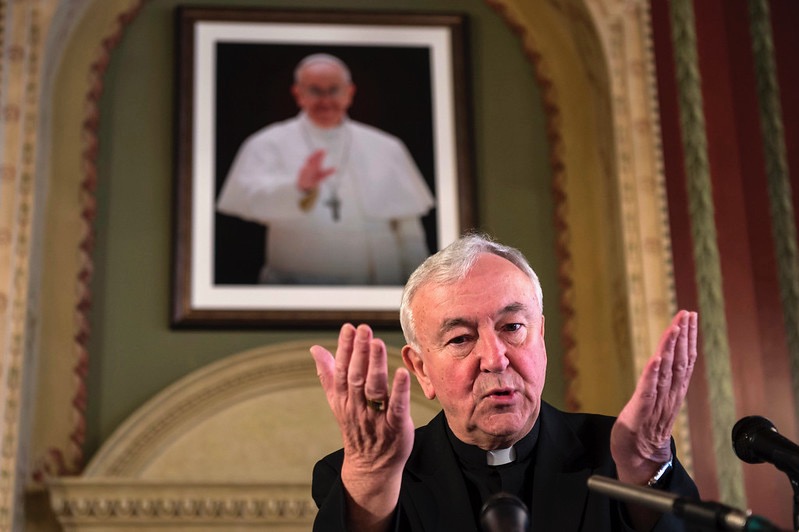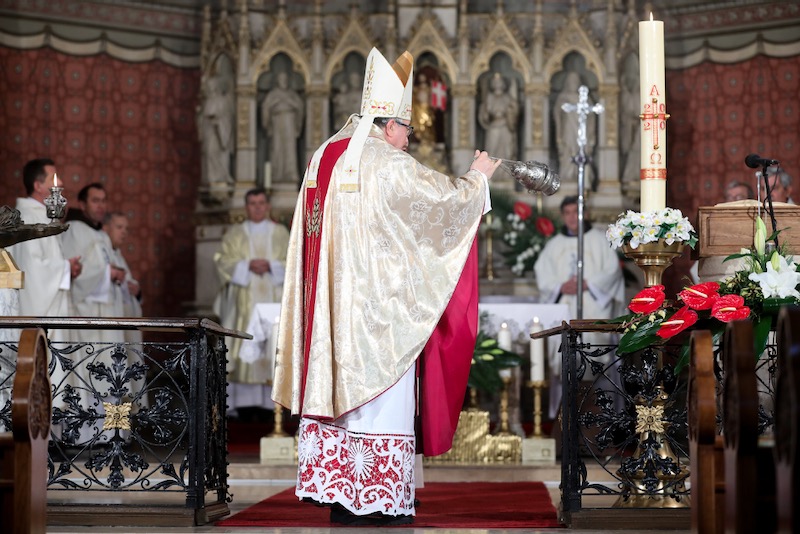The head of the Catholic Church in Bosnia-Herzegovina has voiced solidarity with Muslims in a message remembering the Srebrenica massacre, when thousands of unarmed male refugees were slaughtered by Bosnian-Serb forces during the 1992-5 Balkan war.
“Although we live alongside people of different faiths here, when it comes to death we all have one thing in common,” said Cardinal Vinko Puljic of Sarajevo. “I wish to contribute to building a public culture of respect for all victims, regardless of their national or religious affiliations, thus encouraging representatives of all religious communities to respect each other's victims.”
The 74-year-old Church leader published the message for Saturday's 25th anniversary commemoration in the eastern town, near the Serbian border, which was attended by only a few hundred mourners owning to coronavirus restrictions. He added that he had prayed during the day by the grave of Rudolf Hren, the only Catholic successfully identified by UN investigators, who are still seeking the dismembered remains of more than 1,000 other victims.
Meanwhile, the Vatican's nuncio said Pope Francis was “present in spirit” with “those carrying the scars of the terrible tragedy”, and hoped Bosnia-Herzegovina would always preserve the memory of victims of the “brutal violence”.
Archbishop Luigi Pezzuto told the audience at Srebrenice's memorial centre: “Unfortunately, the hatred that contributed to such bloodshed is still too often present in different parts of the world. We hope it will be replaced by the works of those striving to build a better future, a world of peace for generations to come through a dialogue of understanding and respect.”
More than 8,100 men and boys were killed and thrown into pits over four days in July 1995, after Srebrenica, a UN-declared safe zone, was handed over by Dutch peacekeepers to Bosnian Serb forces. Their commander, General Ratko Mladic, was jailed for life in 2017 for crimes against humanity by the International Criminal Court in The Hague, which also ruled the massacre, Europe's worst since the Second World War, an act of genocide.
Bosnia-Herzegovina's former Muslim Chief Mufti, Mustafa Ceric, told Vatican Radio reconciliation remained difficult, adding that the official Serb stance on the massacre was still “trapped in chains of denial”. In Germany, where a wreath-laying ceremony was held in Berlin, a senior historian and UN adviser, Marie-Janine Calic, told the Catholic news agency, KNA, the Srebrenice massacre had become a source of identity and “myth of origin” for many Bosnian Muslims, while schools in the country's Serbian territory were still being named after Mladic and other war criminals.
Mostly ethnic Croatian Catholics make up 15 per cent of the 4.3 million citizens of Bosnia-Herzegovina, with Muslims and Orthodox Serbs comprising 48 percent and 37 percent respectively. The 1992-5 war cost more than 100,000 lives and ended with the formation of separate Serb and Croat-Muslim entities in a unitary state, which still faces high unemployment and poverty and inter-communal tension.



 Loading ...
Loading ...